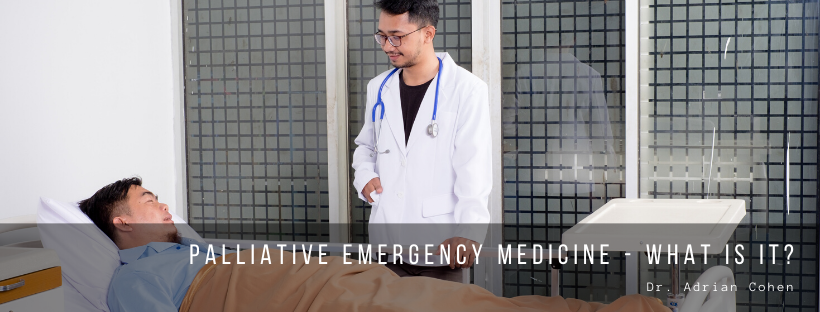When working in the emergency department, the number one goal is usually to prolong life. Success is usually achieved by avoiding a patient’s death, but sometimes it’s not possible. Depending on what the patient is there for you may have to consider if you’re just prolonging the dying process, as opposed to the living. This is why palliative care principles have begun to arise in emergency medicine as of late. These care principles put the patient at the centre of care, taking into consideration their feelings, concerns and decisions so they can have a better experience and a stronger relationship with their physician.
To put it simply, palliative care is defined as an approach that improves the quality of life of patients and their families who are facing problems associated with a life-threatening illness. Palliative care brings many benefits to patients in the emergency department. Since the emergency department typically acts as a “front door” for many conditions and injuries, it can similarly be a front door for palliative care as well. Introducing palliative care in the ED as opposed to later on when they’ve become an inpatient can improve satisfaction for patients and their families, improve system management, and can lessen the time spent in the intensive care unit, among other things. In fact, the length of stay for many ED patients has decreased by an average of 4 days.
Palliative care doesn’t need to benefit only the patients though. It can benefit emergency medical providers as well. Burnout is a serious problem in emergency medicine due to a large amount of emotional exhaustion and an overwhelming number of patients seeking medical attention. Palliative care can help EM providers avoid burnout by providing them with true empathetic engagement with their patients which in turn provides them with a greater sense of satisfaction from helping their patients. Burnout in emergency medicine is sometimes blamed on the fact that many hospitals have moved on from the bedside care aspect of the industry and instead focusing on efficiency, so they can treat as many patients as possible while still providing quality care. Many enter the medical field to help people and by moving towards palliative emergency medicine, physicians are more likely to move towards that.
Having palliative care conversations with patients as soon as they enter the emergency department can be crucial to providing them with a comfortable experience during their time of need. There are many ways this can be handled, from the simpler task of having emergency department doctors provide the care to hiring a team that is there specifically to have these conversations with patients. However it may be done, it’s important that palliative care finds its way into the emergency department.

